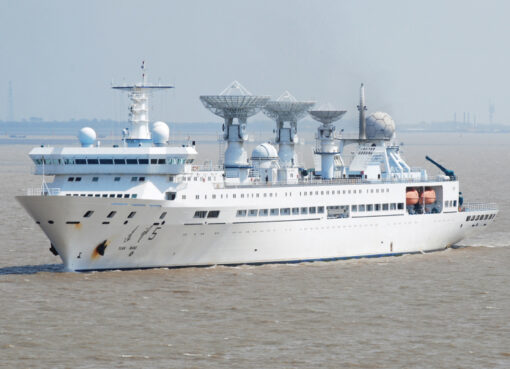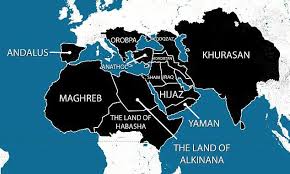IMEC, among all other alternate plans, is much better placed for early functionalization with India and the UAE driving the pace of the progress of the project
by Prasad Nallapati
As attempts to secure a ceasefire in Gaza continued to be elusive and security situation in Red Sea getting worsened, many countries are exploring alternate trade routes to overcome current shipping disruptions.
This week saw further intensification of attacks between the Yemen’s pro-Iran Houthi militia and the US-UK joint force, each suffering considerable damage. Undeterred by US attacks on Monday destroying anti-ship cruise missiles in Yemen, the Houthis had fired more ballistic missiles at commercial and naval ships of the US and its allies.
CIVILIAN RED SEA CASUALTIES
In the first incident of civilian casualties in the current Red Sea attacks, three crew members were killed, and four others sustained serious burns in a Houthi missile assault on Wednesday on the Liberian-registered and Greek-operated bulk carrier, True Confidence. Indian Naval ship, INS Kolkata, rushed to the area and rescued the surviving 21 crew members.
Although the Houthis claim to be targeting US-UK owned ships, they were quite indiscriminate in their attacks. Forty commercial ships so far have come under their missile attacks.
Earlier on Saturday, a UK-owned bulk carrier, carrying fertilizer, was sunk in the Red Sea after being struck by a missile. An American drone worth millions of dollars was downed while its naval ship came under attack earliest this week.
Meanwhile, three underwater telecommunication cables were cut on Monday disrupting 25 per cent of the data flow through the Red Sea between Asia and Europe. While the US has pointed fingers at the Houthis, the latter dismissed such accusations.
The Houthis, however, demanded that international ships involved in repairing damaged undersea internet cables in the Red Sea obtain permission to do so from their government. They also warned of more “painful” attacks against the US and the UK.
IRAN RAISING STAKES IN RED SEA MILITARIZATION
Iran, which has so far denied supporting its proxies fighting Israel and the US, now appears to take much harder stand. Its Republican Guard Corps Quds Force Commander Brig. Gen. Esmail Ghaani declared on Wednesday that Iran’s partners have taken a more “offensive stance” in the Israel-Hamas war. He was addressing the country’s Assembly of Experts.
Iran is also reportedly seeking to set up a naval base on the Red Sea coast in support of its naval operations. The American Wall Street Journal, quoting a senior Sudanese intelligence official, reported on March 3 of an Iranian request to Sudan for permission to build the project on its coast.
Ahmad Hasan Mohamed, intelligence adviser to the Sudanese military leader, stated that Iran offered `a helicopter-carrying warship” in exchange for Sudan allowing Iran to establish the base. He further stated that Iran wanted to gather intelligence on maritime traffic around the Suez Canal and Israel. Both Sudan and Iran have refuted the report.
It may be recalled that the Iranian naval intelligence vessel, MV Behshad, and a frigate were hit by a US cyberattack last month that put the two ships out of action in the Red Sea. They were reportedly monitoring movements of commercial ships and helping the Houthis direct their attacks.
Western media had earlier reported of Iran’s supply of its Mohajer-6 drones to Sudanese armed forces. Iran is trying to get a foothold in Sudan, where the former’s Gulf rivals are already deeply entrenched supporting opposing factions. The Saudis are backing the armed forces while the UAE is providing funds and arms to rebel paramilitary force, the Rapid Support Forces (RSF).
The Red Sea and the Gulf of Aden are thus being increasingly militarized with several countries setting up their naval bases. Djibouti, at the mouth of the Red Sea, is already hosting eight foreign naval bases including that of the US, UK, France, and China. Ethiopia recently secured permission to set up a naval base on the coast of Somalia’s break-away region of Somaliland.
Shaken by the Ethiopian break-in, Somalia rushed to expand its recently signed defence pact with Turkiye to include maritime security of its Red Sea coast. There are also intermittent reports of Eritrea, another regional coastal state, being engaged in defence cooperation with Israel, UAE, Russia, and China.
RUSH FOR NEW TRADE ROUTES AMIDST SECURITY CHALLENGES
The growing security challenges arising out of the increased militarization of the Red Sea are forcing countries and foreign enterprises to innovate and develop new trade routes and to redesign logistics for stable supply chains.
Land “Truck” Corridor
Credible reports suggest that Israeli startup Trucknet, in collaboration with logistic companies in Dubai, Bahrain and Egypt, has quietly launched in December a land corridor for transport of cargo from the Gulf, passing through the UAE, Saudi Arabia, Jordan and ending in Haifa port in Israel. Jordan, however, denied facilitating such a trade route through its territory possibly for fear of Palestinian reprisals.
“Trucknet was sending goods including food, plastics, chemicals and electricals from ports in the UAE and Bahrain, through Saudi Arabia and Jordan, on to Israel and further to Europe,” according to a Bloomberg report last month. Quoting its CEO Hanan Fridman, it noted that cargo from India and Far East had also been sent by trucks.
The corridor, backed by the US, cuts short a 14-day shipping time around Cape of Good Hope to four days by road, says Fridman. While it has limitations on volume of goods being carried by trucks, it serves a short-term solution from Red Sea attacks.
IMEC
Meanwhile, India, UAE, US, and other major countries are speeding up the proposed “India-Middle East-Europe Economic Corridor” (IMEA) that was announced at the G20 summit in New Delhi in September last. It comprises of railroads, ship-to-rail networks and road transport routes, besides high-speed data cables, hydrogen pipeline and electricity cables.
Seen as a counter to China’s `Belt and Road Initiative’, the IMEA avoids problematic routes through the Red Sea, Persian Gulf and Turkiye.
India and the UAE have signed a `framework’ agreement on February 13 during Prime Minister Narendra Modi’s visit to the Gulf state to functionalize initial sections of the trade corridor. DP World, Dubai-based port operator, is building a large-capacity terminal at an estimated cost of US $ 510 million at Tuna Tekhra in Deendayal Port in Gujarat state. It secured a $422 million loan from two Indian funding agencies, including the Axis Bank.
French President Emmanuel Macron, meanwhile, named a new envoy to lay the groundwork of the IMEA project. Gerard Mestrallet, former CEO of French energy utility Engie SA, has stated late last month that he would soon convene a meeting of the representatives of IMEC member states to plan forward. Several French companies have offered to invest in logistic hubs along the route.
DRY CANAL PROJECT OF TURKIYE AND IRAQ
Having left out of the IMEA, Turkiye and Iraq are pushing for their own trade initiative, known as the Development Road or “Dry Canal” project to connect European markets to the Gulf via a network of roads and railways extending through the two countries.
Its success, however, depends on several factors such as their funding capacity, Iraq’s internal divisions, security challenges in Red Sea and Iran’s attitude. Iran, which has complete sway over Iraqi political landscape, is not included in the project. In addition, Iraq’s independent Kurdish region is also sought to be excluded from the plan.
IMEC, among all other alternate plans, is much better placed for early functionalization with India and the UAE driving the pace of the progress of the project. Regional states like France, Greece, Saudi Arabia, and Israel are fully geared to make it move faster.
(*Prasad Nallapati is President of the Hyderabad-based think tank “Deccan Council for Strategic Studies” and former Additional Secretary to Govt of India)




